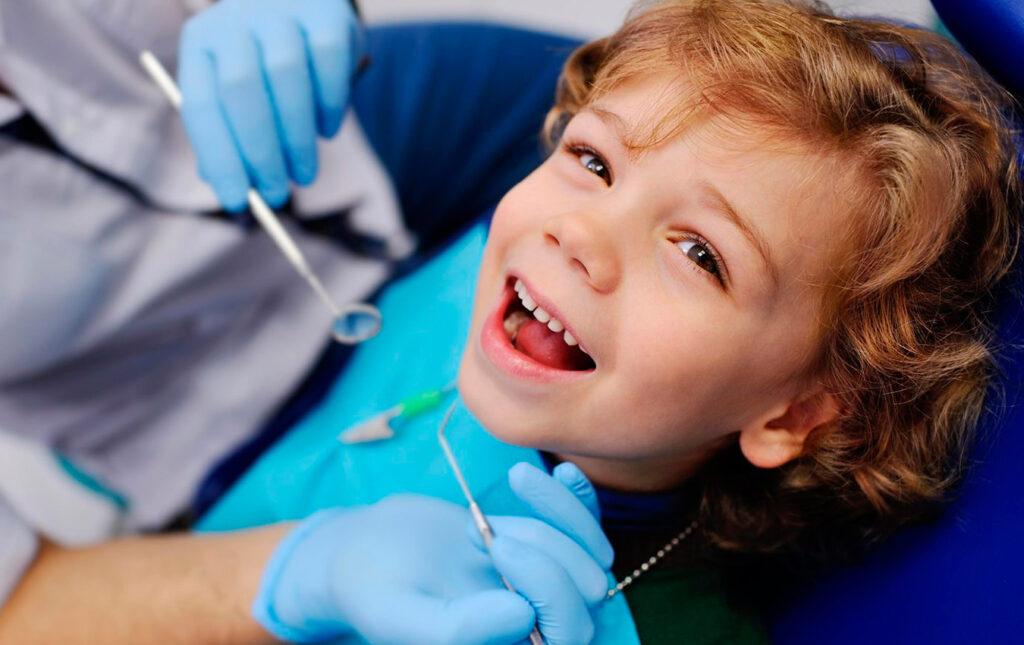
When your baby is born, the last thing on your mind will be his or her first visit to the dentist. You think you’ll just worry about that when her teeth come in … after all, there’s nothing to check yet. However, the American Academy of Pediatric Dentistry (AAPD) advises parents to take their infants in as early as 6 months, when the first tooth appears, but at least by age one. Doing this will start him off on the right foot … or tooth.
A child’s teeth begin to develop while the mother is pregnant, at about the sixth week of gestation and continue until they erupt in the mouth when the child is about six to twelve months old. Even though there’s not much to look at, there are some really good reasons to start early with a pediatric dentist.
A pediatric dentist will look for all sorts of things on that first visit. She will check whether the teeth seem to be developing properly, whether there are any cavities, and how the bite is developing. He will also advise you about proper care of your child’s teeth, how and when to brush, and good habits to prevent tooth decay (like not putting your baby to bed with a bottle of anything that contains sugar). If necessary, the dentist will clean your child’s teeth and look for potential problems with gums, jaw or other oral tissues. The health of a child’s teeth and mouth is also a factor in developing speech, so preventive care will ensure there are no problems as your baby learns to talk.
One of the most important reasons for that first dental check up is to establish a relationship with a pediatric dentist and begin to get your child comfortable going to the dentist’s office. When there’s not much to do and no real dental problems is the best time to start. That will ensure your child doesn’t develop fear of the dentist or associate a dental visit with anything painful or stressful.
Here are some tips that will help make this an easy and stress-free experience for you and your baby.
- Check out the dentist in advance … look for a pediatric dental specialist and call the office to find out about his/her practice philosophy.
- Don’t let anyone tell your child any scary stories about going to the dentist … other children sometimes think it’s funny to scare little ones, but it can have a lasting impact and make going to the dentist, even as an adult, a miserable experience.
Be calm. If you are nervous your baby will sense it and become scared or fussy, and that’s the last thing you need.
Schedule the visit at a time when your child is normally awake and active; a sleepy baby will not have a good time with the dentist’s fingers in his mouth.

